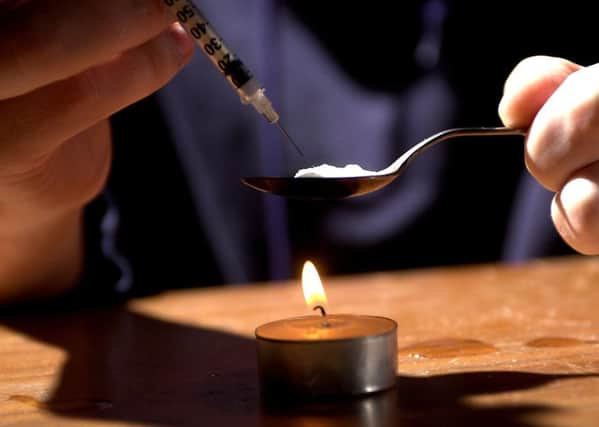Why you are to blame for Scotland’s drug-death crisis – Karyn McCluskey


Who looks after those who look after our most vulnerable citizens? What does it do to you when the people that you support – gained the trust of, befriended and cared about – die? What’s the effect when this starts happening more and more often, what’s the effect when you are the one finding them, lying in their home or in the street?
I know what happens – people leave. They give it up and do something else because it’s too painful, too hard and it begins to feel futile to try to change it. The toll it takes and the price they are asked to pay is too high. I know what happens because it is happening, right now. It’s happening in homelessness charities like the Simon Community, it’s happening in organisations that work with substance misuse.
Advertisement
Hide AdAdvertisement
Hide AdThere was a time when a death in our homelessness charities was an unusual event that shook the whole organisation, people would remember it for years. However, when the people you are trying to help are dying in startling numbers, it becomes the new, awful, normal. Of course, it feels like failure.
And it is failure, but not of these hardworking people on the ground, giving up their time and emotional energy for others. Rather it’s the result of a toxic ripple effect, but where did it begin, where do we point the finger?
It’s true there’s been missed opportunities policy-wise – bold choices could have been made which might have resulted in damning op-eds in the press, but could also have saved lives. More money in the right places could have allowed services to expand and improve their work, increase staff numbers and resources, allowing more access to the help they need. But neither of these lie at the epicentre of this pernicious problem of hopelessness, trauma and death.
So what is the true cause of the lack of brave policy, budget cuts, traumatised staff and the rapidly rising number of dead bodies? It’s us – we’re the cause. We perceive those who misuse substances as inferior and undeserving. They have been portrayed in the media, films and TV as weak, scrounging and untrustworthy. We haven’t viewed those who struggle with addiction as fellow humans for a long time, so is it any wonder that we have punished them at every level? Is it any wonder that we resent ‘our’ money being spent on them? And if those in power shy away from implementing controversial but evidence-based practices, who can we blame but ourselves?
We’ve known for a long time that Scotland has a problem; addiction, poverty and deprivation still blights our villages, towns and cities, snatching up parents and children alike. When we walk through our communities, we see the increase of people sleeping on our streets and we read almost daily of the soaring drug deaths, I can’t have been alone in my shock at the story of people getting HIV tests and their results on the street. I always imagined a clean, warm clinic with tea and biscuits, not a wet, dismal street. We can no longer comfort ourselves with the belief that the dead chose their path of misery and pain. Our neighbours are dying and it is a national scandal.
We seem able to hold opposing moral universes; other-ising our fellow citizens as ‘junkies’ or ‘skagheads’, tutting when we see them in our city centres whilst simultaneously shaking our heads in disbelief at the record number of their deaths. We lost the war on drugs years ago. It was a pointless policy and it cost us billions, and the loss of life has been huge. So let’s think of a different path and consign our drug deaths to a terrible, painful history. One that we will never revisit.
